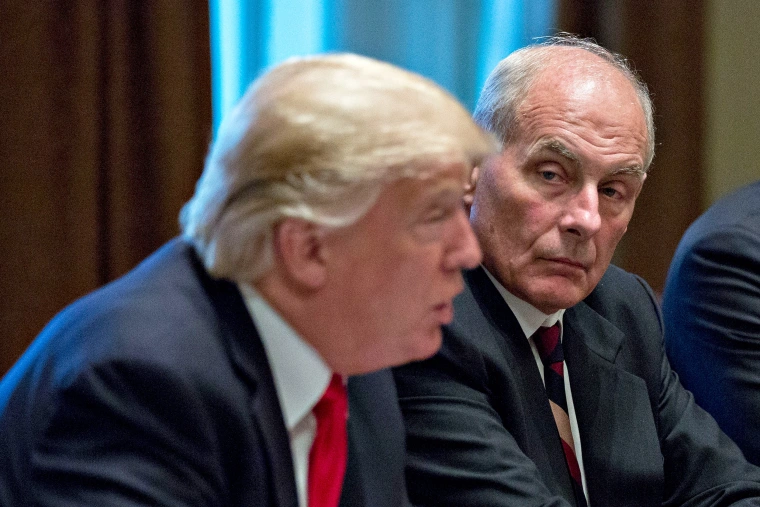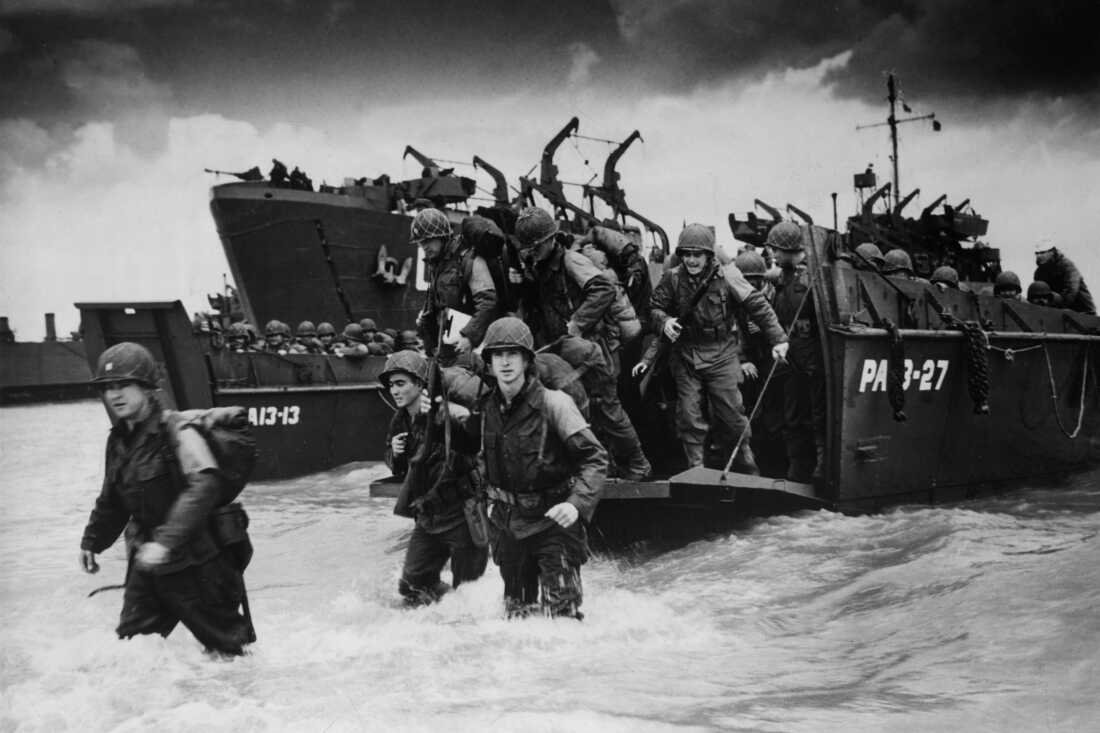In a chilling revelation, General John Kelly, former White House chief of staff, confirmed that Donald Trump expressed a desire for his generals to be loyal to him in the same way that Adolf Hitler’s generals were loyal during World War II.
According to Kelly, Trump reportedly asked, “Why can’t you be like the German generals?” when frustrated by the military’s resistance to some of his directives. Kelly replied, “You do know that they tried to kill Hitler three times and almost pulled it off, right?” but Trump remained unfazed, indicating his admiration for their perceived loyalty to Hitler.
This statement speaks volumes about Trump’s authoritarian mindset, drawing eerie parallels to one of history’s most infamous dictators, Adolf Hitler.

The Cult of Personality: Hitler and Trump
Both Adolf Hitler and Donald Trump are known for their ability to stir the masses and cultivate intense personal loyalty among their supporters. In 1932, Hitler’s rise to power was propelled by his inflammatory rhetoric, scapegoating of minorities, and promises to restore Germany to its former glory. Trump’s campaign echoed these same themes with his “Make America Great Again” slogan, his frequent demonization of immigrants, and his vilification of Muslims, Mexicans, and others. Just as Hitler exploited economic instability and fear, Trump capitalized on America’s social divisions and the frustrations of disenfranchised voters.
Pro-Hitler Comments and Associations
Trump’s fascination with Hitler has been publicly documented. In 1990, Trump’s ex-wife Ivana Trump revealed in a Vanity Fair interview that Trump kept a book of Hitler’s speeches, My New Order, on his bedside table. While Trump denied reading the book, the fact that it was in his possession raises questions about his ideological influences.
Moreover, Trump’s admiration for authoritarian leaders, including his infamous praise of North Korean dictator Kim Jong Un and Russia’s Vladimir Putin, echoes the rhetoric used by Hitler during his rise. Trump’s comment that some “very fine people” were part of the white nationalist and neo-Nazi rally in Charlottesville in 2017 shocked the nation, as these groups openly carried Nazi flags and chanted anti-Semitic slogans.
In Michael Bender’s book Frankly, We Did Win This Election: The Inside Story of How Trump Lost, it was reported that Trump told his Chief of Staff, “Hitler did a lot of good things,” during a 2018 trip to Europe to mark the 100th anniversary of the end of World War I. This statement was widely condemned, as it appeared to gloss over Hitler’s role in the Holocaust and other atrocities.
The Playbook of Division and Scapegoating
Hitler’s rise was marked by the dehumanization of Jews and other minorities, using them as scapegoats for Germany’s problems. Trump, similarly, has spent much of his political career scapegoating groups for America’s ills. His incendiary rhetoric, such as calling Mexican immigrants “rapists” and referring to African countries as “shithole countries,” is disturbingly reminiscent of Hitler’s vilification of marginalized groups.
Trump’s “Muslim ban” and his border wall proposals reflect Hitler’s early policies of exclusion and xenophobia. While Hitler’s policies ultimately escalated to genocide, Trump’s proposals, though different in scale, follow the same logic of ‘othering’ groups for political gain.
VANITY FAIR 1990

Trump’s obsession with Adolf Hitler did NOT start yesterday. It’s been decades. In fact, a Vanity Fair interview with Donald Trump’s late first wife Ivana Trump has resurfaced in which she alleges that her former spouse used to keep a book of Adolf Hitler’s speeches in his bedside cabinet.
The article from September 1990 has reappeared in the wake of the Republican presidential contender coming under fire for saying that immigrants are “poisoning the blood of our country” in a speech at a New Hampshire rally on Saturday.
Violence and the Undermining of Democracy
Adolf Hitler rose to power by undermining democratic institutions, cultivating fear, and using violence as a tool to suppress dissent. The January 6, 2021, Capitol riot, incited by Trump’s baseless claims of election fraud, mirrored Hitler’s stormtrooper tactics in the early 1930s. Just as Hitler used the Reichstag fire to justify the suppression of political opponents and dissent, Trump stoked the flames of insurrection and chaos as a means to maintain his grip on power, leading to one of the darkest days in modern American history.
Trump’s repeated refusal to denounce violent groups like the Proud Boys, his encouragement of violence at his rallies, and his flirtation with far-right extremists show his willingness to cultivate a base of supporters who are willing to use force to achieve his political ends. Hitler employed similar tactics with his Brownshirts, paramilitary forces who violently suppressed opposition and dissent.

Conclusion: A Dangerous Path
The parallels between Donald Trump and Adolf Hitler are stark and alarming. Both men leveraged fear, division, and authoritarianism to build their political movements. Trump’s admiration for Hitler’s generals and his disturbing comments about Hitler’s actions should serve as a wake-up call for those who believe in the preservation of democracy. The world has seen this playbook before, and the consequences of ignoring the signs can be catastrophic.
We must remain vigilant and committed to defending democratic institutions, free speech, and the rule of law, lest we fall into the dangerous path that Germany did under Hitler’s rule.

Sources:
- General John Kelly’s comments – “General John Kelly Confirms Trump Admired Hitler’s Generals.” The Atlantic, 2023.
- Ivana Trump’s My New Order comments – “Trump and the Hitler Book.” Vanity Fair, 1990.
- Charlottesville ‘very fine people’ quote – “Trump Defends Charlottesville Comments.” The New York Times, 2017.
- Frankly, We Did Win This Election: The Inside Story of How Trump Lost by Michael Bender, 2021.
- Trump’s Hitler comments in 2018 – “Trump Praises Hitler’s Economic Policies.” The Guardian, 2021.











